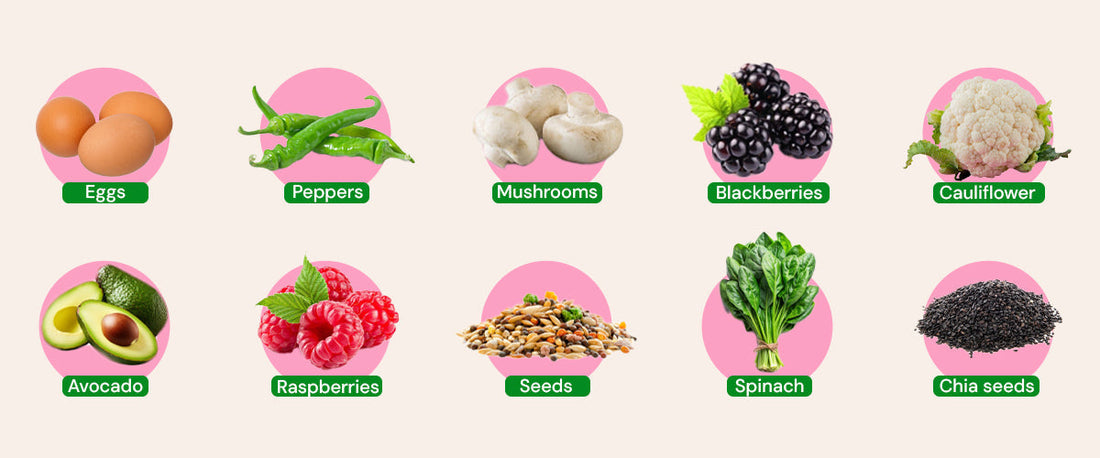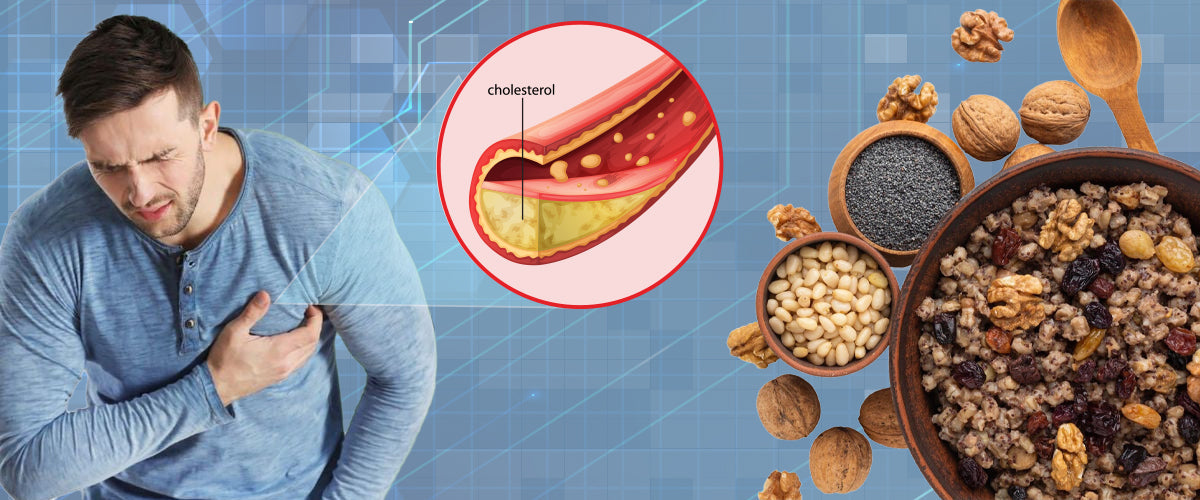INTRODUCTION
Low-carb diets have gained popularity in recent years because of their possible advantages for blood sugar regulation, weight loss, and general health. Low-carb diets, especially those that emphasize cutting back on sugar and refined carbohydrates, have become increasingly popular as more people search for efficient dietary methods to oversee their health. People can have more energy, better metabolic function, and a lower risk of chronic diseases like type 2 diabetes, heart disease, and obesity by emphasizing foods that are naturally lower in carbohydrates and placing a higher value on healthy fats and proteins.
Cutting back on carbohydrates has become popular, but it's important to understand that not all carbohydrates are created equal. Carbohydrates' effects on health are mostly dependent on where they come from. Simple carbs, including those in soda, sugary snacks, and processed grains, can cause energy dumps, blood sugar rises, inflammation, and weight gain. However, complex carbs, which are abundant in fiber and other nutrients and can be found in entire meals like fruits, vegetables, and legumes, provide a far healthier option.
Many people make the mistake of focusing just on eliminating carbohydrates when starting a low-carb diet, neglecting the significance of selecting nutrient-dense substitutes. Getting rid of processed meals and carbohydrates alone won't ensure good health. It's critical to swap these items out for low-carbohydrate ones that will help you cut back on carbohydrates while also giving you the vitamins, minerals, fiber, and healthy fats your body needs to function properly.
The top ten low-carb meals that are simple to incorporate into your diet are presented in this article. These foods are chosen for their high nutritional value as well as their low carbohydrate level, so you are getting the most out of your meals. These items are all high in nutrients and boost your general health and energy levels while fitting into a low-carb diet.
Whether you're following a ketogenic diet, managing blood sugar levels, or simply seeking a healthier way to eat, these low-carb foods can play a key role in creating a balanced and sustainable eating plan.
The Benefits of a Low-Carb Diet
- Weight Loss and Fat Burning - Talk about how cutting carbohydrates can help you lose weight by causing your body to burn fat for energy, particularly when following low-carb diets like Keto.
- Better Insulin Sensitivity and Blood Sugar Control - Describe how low-carb diets can help control blood sugar levels and may be advantageous for people with type 2 diabetes or those attempting to prevent blood sugar rises.
- Heart Health - Discuss how a low-carb diet may help lower blood pressure, triglycerides, and cholesterol—all of which are linked to improved heart health.
- Higher Energy Levels - Draw attention to the fact that cutting back on carbohydrates might provide some people consistent energy levels throughout the day.
Things to Consider When Choosing Low-Carb Foods
- Emphasis on Nutrient-Density - Describe the significance of selecting foods rich in vitamins, minerals, and fiber. This comprises lean meats, healthy fats, and non-starchy veggies.
- Avoid Processed Foods - Advise readers to stay away from highly processed, packaged meals that are marketed as "low-carb," but may actually contain artificial additives, harmful fats, or hidden sugars.
- The role of Fibre - Talk about how fiber aids in digestion and satiation, particularly when ingesting non-starchy veggies, making it a crucial part of a low-carb diet.
Top 10 Low-carb Foods to Include In Your Diet
Eggs
Eggs are a staple in low-carb diets since they are low in carbohydrates and high in protein and good fats. A big egg has less than one gram of carbohydrates, 6.3 grams of protein, and 5.3 grams of fat. Vitamins A, B12, selenium, and numerous other minerals are abundant in eggs.
The most nutrient-dense portion of eggs, the yolks, really contain all the vitamins except C. Eggs can be combined with cheese and low-carb veggies to create a satisfying, low-carb, high-protein breakfast.
Peppers
If you’re looking for a low-carb-friendly vegetable that’s beneficial for your skin, immune system, and more, look no further than peppers. Not only are peppers low in carbs, but they’re one of the best sources of vitamin C, a nutrient that plays essential roles in immune function and collagen synthesis, that you can eat. One large sweet red pepper contains just 5.5 grams of carbs but covers over 130% of the DV for vitamin C.
Mushrooms
Adding mushrooms to your diet can help support your intake of critical nutrients such as fibre, potassium, and selenium, a mineral that’s needed to create special types of proteins called selenoproteins, which help protect cells from oxidative damage and are necessary for the production of thyroid hormones.
Mushrooms are low in carbs and high in fibre, with a 100g of uncooked white button mushrooms providing 3.11 grams of fibre and just 1.98 grams of carbs.
Blackberries
Like raspberries, blackberries are low in carbs and high in nutrients like fibre, vitamins, and minerals. Just 1 cup of blackberries contains 13.8 grams of carbs and just under eight grams of fibre, which covers 28.5% of the DV for this important nutrient.
Blackberries are also rich in folate, vitamin K, vitamin C, and manganese, a mineral that’s necessary for energy metabolism and immune function
Cauliflower
Cauliflower is commonly used as a low-carb replacement for grains and grain products. For example, cauliflower can be chopped finely and used as a substitute for white rice in dishes like stir-fries. One cup of cooked cauliflower contains just 5.1 grams of carbs and 28.6 calories yet is high in nutrients like folate and vitamin K.
Avocado
Avocados are low-carb, high-fibre fruits that are a staple in low-carb eating patterns, like the keto diet. A half of an avocado provides 6.75 grams of fibre and just 1.75 grams of carbs. They’re also packed with vitamins and minerals, such as folate, potassium, magnesium, and vitamins C and vitamin E. What's more, avocados are a good source of antioxidant compounds, such as carotenoids, which can help protect cells from oxidative damage.
Raspberries
One of the fruits with the fewest carbohydrates is the raspberry. In addition, they contain a lot of fibre, other vital minerals including vitamin C, manganese, and vitamin K, and a number of potent antioxidant plant chemicals like ellagitannins and anthocyanins.
Just 17.8 grams of carbohydrates, which is comparatively low for fruit, and an impressive 9.75 grams of fibre, or nearly 35% of the DV for fibre consumption, which is presently set at 28 grams, are found in a 1-cup serving of raspberries.
Seeds
Chia seeds, pumpkin seeds, flaxseeds, sunflower seeds are some examples of this. Seeds are low GI foods which help maintain blood sugar level. Seeds contain essential fatty acids along with vitamins A, B, C and E with the added benefits of calcium, magnesium, potassium, selenium and manganese.
Spinach
There’s a good reason for eating your spinach. It’s a vitamin and mineral powerhouse, especially vitamins A and K, folate, magnesium and manganese. One cup of raw spinach has 1.1 grams of carbohydrates and 0.7 grams of fibre, according to the USDA.
Chia seeds
Despite their diminutive size, chia seeds are incredibly nutritious. Because they only have 11.9 grams of carbohydrates per ounce, these little seeds are safe to include on low-carb diets in addition to being abundant in fibre, calcium, iron, and magnesium.
Many low-carb dieters find it difficult to get enough fibre each day, which raises the possibility of adverse effects like constipation. Chia seeds and other high-fibre foods can be included to low-carb diets to assist support digestive health and make sure your body is getting enough fibre to stay healthy.
To help make your food Low Carb, try the Moder/ate Carb cutter product. It is a plant based product that partially and temporarily blocks the enzymes that digest carbs and sugars thereby reducing the amount of carbs and sugars that enter into the body despite consuming them. It is very easy to take too, just pop in a tablet before you start eating a carb heavy meal / snack or a beverage. These undigested carbs and sugars pass out of the body. This product is available at www.letsmoderate.com.
| *** This Article is Written by Vaishnavi Patil, MSc in Food Science and Nutrition. |






